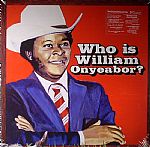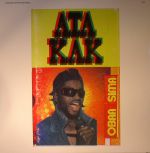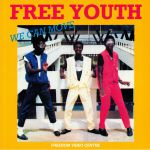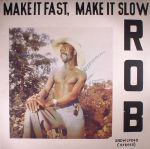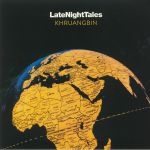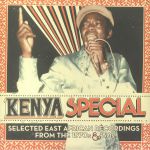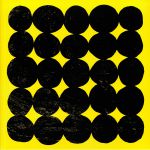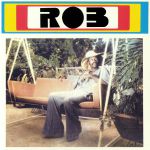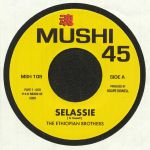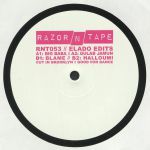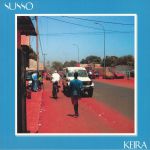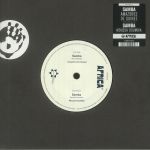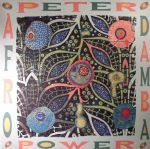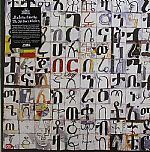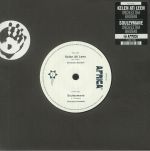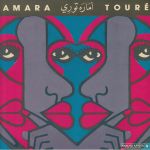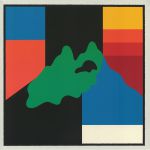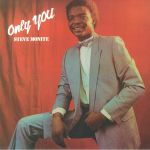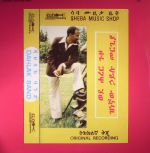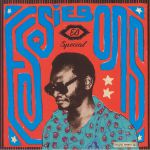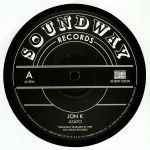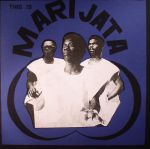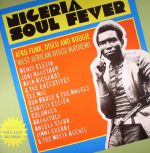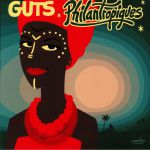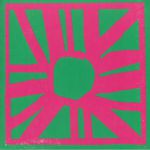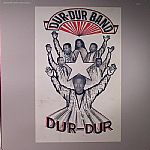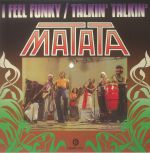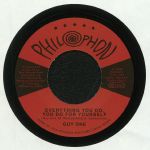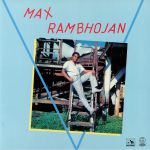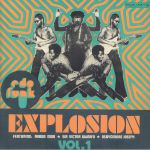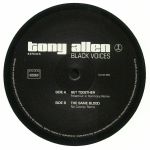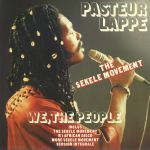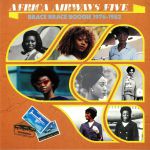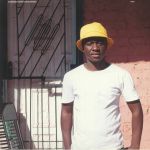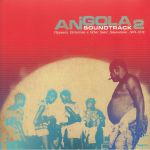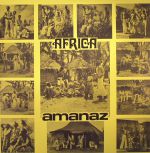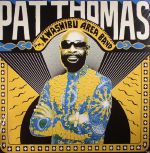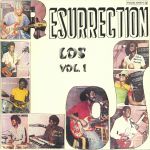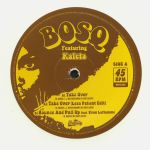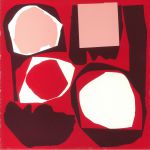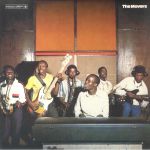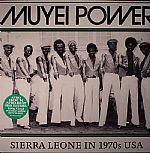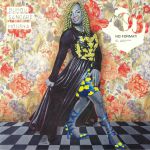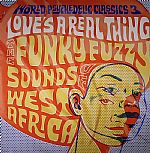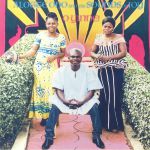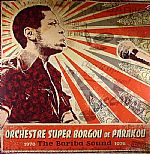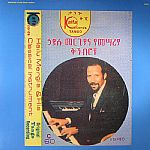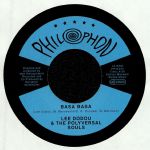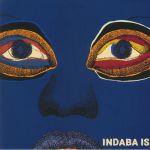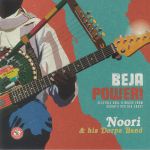安全购物
Studio equipment
Our full range of studio equipment from all the leading equipment and software brands. Guaranteed fast delivery and low prices.
安全购物
DJ equipment
Our full range of DJ equipment from all the leading equipment and software brands. Guaranteed fast delivery and low prices. Visit Juno DJ
Filter
Stock
Release Date
Artist
Label
Release Title
Price
Tags
Tags: African
Products tagged as AfricanWorld Psychedelic Classics 5: Who Is William Onyeabor? (gatefold 3xLP)
Cat: RT 54/8089900791. Rel: 21 Oct 13
International
Review: Following 2012's fourth volume that celebrated the existential work of Tim Maia, here we find Luaka Bop exploring the legacy of William Onyeabor. A high chief and Kenyan diplomat who allegedly refuses to discuss his music, he self-released eight albums in the 70s and 80s and these are some of the many highlights. Stretching from the New York-influenced post-punk synth funk of "Good Name" to the most authentic Afro fusion of "Why Go To War", Onyeabor's range not only reflects his clear creative skill, but also the ever-developing international language of music during the fruitful period he was active. Who is William Onyeabor? Press play and find out yourselves...
… Read morePlayed by: Scratchandsniff, Andrew Pirie (Melting Pot), Djouls (Paris DJs), Powlo Thirsty Ear, Charles Maurice, Felix Dickinson, Dicky Trisco, Lawrence Le Doux, Sito / / Mischio Dischi Disco, Manu Archeo, AfroBase (Radio Chart), RUSTAM OSPANOFF., Eamon Harkin, Mister Saturday Night, Bradley Lucke, Curt J, Ksoul, Ionik (Traveller Records, KGS), Mop Mop, Dusty / Jazz & Milk, Adam isbell -Racubah Sound System, Kisk, Andrew Allsgood (Free Association), Voodoocuts, Patrick Forge, Horton Jupiter, Far Out Recordings, Pushin Wood (Bambeats), Session Victim, Juno Recommends Funk, Riccio, Marsman, Damon Martin (Disco Bloodbath), Eddie C, Amen Brother Disco Band, Afro Beat Foundation, Daniel Nellstrum O'Bongo, Juno Classics, JKriv (Razor-N-Tape), Your Name (Legalize Lambada), Alien Disco Sugar / Leonidas DeeJay, Sccucci Manucci, Mitchell Goor, DJ ROCCA, Dam Swindle, Hugo Mendez, Alan Dente, Pedestrian, DJ Kobayashi, Guillaume Metenier (Gee Recordings), Chesney, Freddie Norwood, Francesco Rossini, Bal 5000
… Read more in stock $36.36
Review: This latest reissue from Awesome Tapes From Africa is the whole reason for founder Brian Shimkovitz starting the blog and the label that grew out of it. Some 13 years ago, Shimkovitz stumbled across a cassette copy of Obaa Sima whilst travelling Ghana and his love for Ata Kak's music lead to the foundation of the Awesome Tapes From Africa blog and the commencement of a long running effort to track down the Ghanaian musician. Some four years after ATFA became a label, Shimkovitz finally tracked down the musician, real name Yaw Atta-Owusu, and was granted permission to reissue Obaa Sima, using the second hand tape purchased in Ghana as the source. The seven tracks on this LP are a winning tinny combination of highlife, rap, pop, and more with "Daa Nyinaa" sounding like a cover version of William De Vaughn's "Be Thankful For What You've Got".
… Read morePlayed by: Alexis Le-Tan, Charles Maurice, JimmyTheTwin, AfroBase (Radio Chart), Ionik (Traveller Records, KGS), Adam isbell -Racubah Sound System, Sha'D Underground Trax, Dj soFa, Funky Bompa, In Flagranti, Afro Beat Foundation, I Love Disco!, Bastien Carrara, Fulbert, Juno Recommends International, Africa Seven
… Read more in stock $15.99
Played by: Mukatsuku Records Chart, JimmyTheTwin, Adam isbell -Racubah Sound System, Sol Power All-Stars, Galletas Calientes, Afro Beat Foundation, I Love Disco!, JKriv (Razor-N-Tape), Andrea passenger, Calamity Jade (Willwork4funk), Cyclist, Red Greg, Charlie bucket/ dancing in space, Juno Recommends International, Ari Bald, Kalita Records, Jake Stellarwell
… Read more in stock $10.83
Review: Soundway surpass themselves again with this wonderful reissue from the Ghanaian artist Rob, who released two albums back in 1977 for the West African Essiebons label. Rob was a seasoned musician in the 70?s, having recorded and toured with many well known bands. The album is a somewhat Spartan, brooding affair where less is most definitely more as slow burning, hip swaying cosmic funk drenched compositions are offset by wonderful punchy brass arrangements. A slow burning pulse is present throughout with highlights being ''Loose up Yourself'' and the irreplaceable carnal conquest anthem '' Make it Fast, Make it Slow''. Songs of celebration sit alongside other pieces of introspection and socially conscious topics; some might criticise the odd duff notes and occasional raw vocal edge, but this just adds texture to the overall performance and vibe. Without question one of the best reissues of 2012.
… Read morePlayed by: Djouls (Paris DJs), Powlo Thirsty Ear, Lexx, Mukatsuku Records Chart, JimmyTheTwin, Athens of the North (Fryer), AfroBase (Radio Chart), DJ Gilla, Pat Les Stache (Cabana Disco), Boy Oliver, Mop Mop, Frankie Francis (Sofrito), Jazzee Loudness, Patchworks, Funky Bompa, Afro Beat Foundation, Soundway Records, Suonho, Captain Planet (Bastard Jazz), Modern Sun Records, NICOLA CONTE, Skyline Recordings Chart, Citizen Dale (of KEPT RECORDS), Corazon At Floripa, Admin, Originals
… Read more in stock $19.59
KHRUANGBIN / VARIOUS
Late Night Tales (180 gram vinyl 2xLP + art print + MP3 download code)
Cat: ALNLP 60. Rel: 04 Dec 20
Indie/Alternative
Review: Khruangbin might be the most logical and fitting choice for a Late Night Tales compilation in recent memory. The Texan psychedelic chill artists have always had a sense of the exploratory and unknown running through their blissful grooves, and the fundamental idea behind this series was always about opening up doors to new musical discoveries for listeners.
In many ways, the Houston trio have gone above and beyond. Melding a breadth of sounds that have emerged from an equally diverse set of cultures, we visit Hindi-disco, South Korean rock, African bass, Belarusian folk. Capped off with an exclusive version of Kool & The Gang's 'Summer Madness' conceived by the compilers themselves, it's a case of 15 gateway tracks all of which belong to artists and genres that are crying out for you to dive in.
… Read moreIn many ways, the Houston trio have gone above and beyond. Melding a breadth of sounds that have emerged from an equally diverse set of cultures, we visit Hindi-disco, South Korean rock, African bass, Belarusian folk. Capped off with an exclusive version of Kool & The Gang's 'Summer Madness' conceived by the compilers themselves, it's a case of 15 gateway tracks all of which belong to artists and genres that are crying out for you to dive in.
in stock $25.78
VARIOUS
Kenya Special: Selected East African Recordings From The 1970's & 80's (gatefold 3xLP + 7" + MP3 download code)
Cat: SNDWLP 046. Rel: 15 Mar 17
International
Review: Having explored the rich heritage of Nigeria and Ghana with well researched vigour, Soundway turn to Kenya for their next adventure... A rare insight: while Lagos was churning out seminal Afrobeat compositions, Kenya took to western influences in a much subtler fashion. With heavy emphasis on the Kenyan benga and Afro-Cuban rumba there's a much deeper, local folk presentation and format throughout most of the selection. Complete with detailed notes and beautiful presentation (like all Soundway compendiums) this won't look out of place in any collection.
… Read more in stock $25.78
Review: The crate-diggers behind the Mr Bongo label can usually be relied upon to showcase some seriously good tunes old and new. That's certainly the case on this third volume in their occasional "Record Club" series of compilations. Spanning sunshine soul, obscure samba, spacey jazz-funk experimentation, wide-eyed underground disco, fiery funk, weirdo rock, cheery South African bubblegum, synth-laden early '80s highlife, Ramsay Lewis style workouts and the psychedelic Middle Eastern disco-funk of Elias Rahbani, the compilation's 20 tracks are not only near faultless, but genuinely surprising and eye-opening. To quote a cliche, this collection genuinely is all killer and no filler.
… Read more in stock $21.65
Review: Eight years on from its previous reissue (that time courtesy of Analog Africa's "Limited Dance Edition" series), Mr Bongo is offering up a fresh, licensed re-press of Rob's eponymous 1977 Afro-funk masterpiece. If you missed out in 2011, the set is definitely worth picking up because it's rock solid heat from start to finish. Check, for example, the heavily percussive Afro-beat/Afro-funk fusion of "Funky Rob Way", the flanged funk guitars and heavy brass action of "Boogie On", the jazz guitars and loved-up vocals of "Your Kiss Stole Me Away" and the William Onyeabor-does-James-Brown heaviness of closing cut "More".
… Read more in stock $21.65
Review: The first release from the Ethiopian Brothers, 2019's 'Ashadwa', was a brilliant slab of Afro-funk that many erroneously believed to be a long-lost classic. In fact, it was the work of a contemporary producer associated with Jalepeno Records. Regardless, the record sounded authentically old and dusty, as does this equally as inspired sequel. 'Selassie (Part 1)' sets the tone, with the producer and his session musicians serving up a righteous Afro-funk workout rich in Tony Allen influenced drum-breaks, flanged guitars, raw tenor sax lines and killer bass guitar. Even more righteous is the flipside 'Part 2' version that showcases more snaking sax lines and some seriously infectious, chant-like vocals.
… Read more in stock $10.83
Review: Antal has already been dropping the worldly beats on this EP which is a fine stamp of approval for Israeli DJ and collector Elado. This marks his debut on the label having won plenty of fans for his offering on Eddie C's cult Red Motorbike. The music take its cues from all over the planet - Africa, India and the Middle East - and brims with disco joy, funk richness and plenty of earthly soul. 'Big Baba' is a classy party starter with good time feels, 'Gulab Jamun' is a foreign language acid laced love song and 'Blame' is synth heavy disco funk.
… Read more in stock $15.99
in stock $16.50
Review: Mr Bongo kickstarts a new Afro 45s series with serious intention; all-girl troupe from Guinea Amazones De Guinee take the lead with a live recording from Paris, 1983. Taken from their Au Coeur De Paris album, it's the perfect example of a live recording with the balance of musicianship and crowd participation precision tuned. Flip for the previously rare 1980 recording by Ivory Coast's Moussa Doumbia whose smoky vocals and JB-level shrieks hit hard over a clam-tight Afrofunk rhythm. What a way to start a new series.
… Read more in stock $9.27
Review: Irishman Peter Power has become quite a well known figure in Berlin since moving there several years ago and has been one of the figures behind some of the city's now legendary haunts like Kleine Reise (RIP) and the successful Loftus Hall/Bertrams: which has had a great run thus far too. Now the man behind the Ufordia imprint returns with his second outing on Thomas Von Party's Multi Culti, which itself has also made the move to the German capital. Power delves deep into the exotic here, borrowing heavily from African music and getting very atmospheric and esoteric in the process. The life affirming raindance of "Adama Waro" (original mix) is certainly geared for some moments of truth on the dancefloor. Equally spiritual is the traditional percussion based journey of "Mori Baka" (original mix). There's some great remixes by label manager Dreems and Bucharest duo Khidja: the latter's contributions which shine the most, particularly on their balearica infused/Second Summer of Love sounding remix of "Dansakoni".
… Read more in stock $12.90
Cat: STRUT 040LP. Rel: 02 Apr 09
International
Played by: Ennio Styles, Mukatsuku Records Chart, 7 Samurai Tom Wieland freesoulinc, Spacewalker (Balance), AfroBase (Radio Chart), Simone Vimercati, Michael Ruetten, DJ Psycut, Jazzee Loudness, Inner Science, Elitechnique, JC - Here And Now Recordings, Afro Beat Foundation, SHOOK MAGAZINE, DJ Kobayashi
… Read more in stock $18.55
Review: Insanely funky business from Senegal's famous Orchestra Baobab (who are still touring and toiling 40 years later), "Kelen Ati Leen" is a really sweaty, heavy slab of funk that stares west for inspiration and a mild psychedelic Hendrixian sheen. "Souleymane", released three years after the A-side in 1978, takes more of a Latin influence as the horns get steamy over a rigid highlife spine to create a detailed and very physical groove.
… Read more in stock $9.02
Amara Toure 1973-1980 (limited gatefold 2xLP + MP3 download code)
Cat: AALP 078. Rel: 30 Jun 20
International
Review: Cuba-meets-Cameroon-via-Guinea-and-Senegal, the roots of this African-adopted Cuban sound are as rich, unique and exciting as Amara Toure's tale itself. After years of club performing in Dakar, Amara and his Black & White Ensemble in the late '60s and proceeded to release 10 songs during the '70s. Here, for the first time ever, all of these recordings are united on this immaculately presented collection. From the cobble-kicking percussive Cuban heels and emphatic harmonies of "Fatou" to the deep yearning crooning blues of "N'ga Digne M'be" and the spacey, out-of-this-world guitars and jazzy trumpet lead of "N'Niyo", there's something very special and unique about this collection. With a heart that beats in Africa but a soul that shines with Cuban fire, as Analogue Africa state themselves... It's only taken 10 songs for Amara to become a legend. Very few artists can claim this feat.
… Read more! low stock $20.37
VARIOUS
Esa Presents Amandla: Music To The People (2xLP + insert)
Cat: SNDWLP 131. Rel: 06 Sep 19
International
Review: Inspired by his own experiences growing up in apartheid-era South Africa and his travels through music, Esa Williams has put together a compilation of contemporary electronic music from around the world. "Amandla: Music To The People" is well worth your attention and contains some genuine gems. Highlights come thick and fast throughout, from the percussive, chant-along sweatiness of Penny Penny's "Shilungu" and the loved-up, pitched-down dreaminess of Alaska's "Accuse (Instrumental)", to the sweet, life-affirming cheeriness of Os Panteras' "Melo Do Anjo (Outro Edit)" and the thrusting, Italo-disco style dancefloor masculinity of Masalo's "Yera". Esa's own late '80s style pitched-down South African house jam "Pantsula Traxx" is also superb.
… Read more in stock $18.04
Review: Since it was first reissued a few years ago, Steve Monite's Only You album has gone from being a stupidly rare Nigerian boogie "holy grail", to an easy-to-access "must have" for anyone with even a passing interest in African disco and electrofunk. If you've yet to acquire a copy, we'd recommend picking up a copy of this officially licensed Soundway repress. It contains two different takes on the now anthemic 'Only You' - an infectious Lagos boogie delight - plus the pleasingly dubbed-out, piano-heavy electrofunk gem 'Things Fall Apart (Disco Jam)' (the original mix is also included at the end of side B), the slick and sweet 'Welcome My Love' and the more downtempo 'I Had a Dream'.
… Read more in stock $19.08
! low stock $24.74
VARIOUS
Essiebons Special 1973-1984: Ghana Music Power House (gatefold 2xLP + booklet + MP3 download code)
Cat: AALP 093. Rel: 03 Dec 21
International
Review: Analogue Africa's 33rd compilation from their regular series, "Essiebons Special 1973 - 1983 // Ghana Music Power House", celebrating legendary producer Dick Essilfie-Bondzie's many achievements within Ghanaian music, which coincides with Analog Africa's 15th Anniversary.
… Read more in stock $23.98
in stock $9.80
Review: Back in 1976, legendary highlife artist Pat Thomas decided to throw his weight behind Ghanian three-piece Marjarita. Thanks to his patronage, they made quite an impact with their debut album (Pat Thomas Introduces Marjita), before striking gold with their killer follow-up, This is Marjita. Since then, the album has become something of a "holy grail" for Afro-funk collectors, with copies changing hands for astonishing sums of money. Happily, Mr Bongo has decided to license and reissue it. The album contains four superb workouts: the hard funk brilliance of "Break Through", the organ-heavy Afrobeat fuzziness of "No Condition is Permanent", the reggae-influenced wonder of "I Walk Alone" and the superior highlife of "We Live in Peace".
… Read more in stock $18.04
VARIOUS
Cat: SJRLP 344. Rel: 09 Sep 16
International
Review: Another work of Soul Jazz curatorial gold: Nigeria Soul Fever is a detailed gatefold trip into one of Nigeria's richest chapters in music. Heavy trade restrictions allowed them to develop their own style without too much US or European influence and the result is an array of national talent who largely remained legends within their own borders. The range is mesmerizing; the sinewy synth and playground vocal Q&A of Benis Cletin's "Get Up & Dance", the ballroom disco soul of Tee Mac's "Living Everyday", the soulful afrofunk folk of Jimmy Sherry's "Nwaeze", the gut-punching power of Arakatula's album finale "Wake Up Africa". This is a treasure trove of unreleased gems that capture a truly unique time.
… Read more in stock $34.81
Review: Under the Guts guise, instrumental hip-hop beat-maker turned tropical soul enthusiast Fabrice Franck Henri has become one of Heavenly Sweetness' most reliable artists. "Philantropiques" is Henri's first album for three years and could well be his most expansive and adventurous to date. The set's 14 tracks are as colourful and musically rich as you'd expect, with the storied producer and a range of vocal collaborators conjuring up tracks that draw influence from a myriad of Central American, Caribbean, South American and African styles. The results are uniformly excellent, with highlights including the tropical shuffle of "Mucagiami (feat Vum Vum)", the sun-kissed French Caribbean funk of "Daddy Sweet (feat Pat Kalla)", the Afro-Tropical rush of "Kenk Corner" and the synth-powered brilliance of "Shake It & Rise Up".
… Read more in stock $23.21
Review: Since launching in 2016, Mr Bongo's Record Club compilation series has provided three essential volumes of personal favourites - many obscure and hard-to-find - selected by the label's in-house team of crate-digging DJs. Volume four is naturally every bit as essential as its' predecessors, offering an enticing mixture of Brazilian, African, soul, funk and disco with not a suspect selection in sight. This time round, they've chosen to include contemporary music as well as dusty old gems, with highlights including Kenny Dope's delicious rework of the soul-jazz positivity of 'Throwing Stones' by James Reese and the Progressions, the fast version of Ze Roberto's 1973 MPB classic 'Lotus 72D' and the samba-folk wonder that is Matthew Tavares' 2019 gem 'Self Portrait'.
… Read morePlayed by: DJ Kobayashi, Juno Recommends International
in stock $21.65
in stock $28.11
Review: Matata were formed in Kenya in 1963, laying down their grooves in Nairobi's Brilliant Club before going on to record two albums in London in the early 70s. Both Air Fiesta and Independence are perfect nuggets of Afro-funk, but alas Matata were reportedly homesick and they disbanded to return home. Their short-lived legacy lives on though, and now Dynamites Cuts have turned to their second album to present two of the hottest joints on a cool and deadly 7". 'I Feel Funky' is one of the band's biggest hits, while on the flip we're treated to 'Talkin Talkin' - you can't say funkier than that really, can you?
… Read more in stock $16.50
Cat: PH 45013. Rel: 07 Dec 17
International
Review: Philophon is a Berlin-based label run by Max Weissenfeldt. Part of Philophon is the Tonstudio Bluetenring in Kreuzberg, operated by Benjamin 'Stibbo' Spitzmueller. The label's essential motivation is to support any form of local culture with reason, freedom and ludic drive. North-Ghanaian singer Guy One presents his first international release here. He promises what his name is saying: he is the number one artist of Frafra music, named after his people. "Everything You Do, You Do For Yourself" is a driving Highlife rhythm and his only song having a phrase in English. "Estre" features one of the leading voices of Frafra-Gospel named Florence Adooni. She interweaves perfectly with the horn arrangements by Weissenfeldt and the drummer. Washington's Hailu Mergia, San Francisco's Idris Ackamoor and the Pyramids and the legendary Scandinavian producer Jimi Tenor have also released on the label over the last year too.
… Read more in stock $8.76
Review: Labels Hot Mule and Secousse have teamed up to deliver something special: a killer EP of "lost gems from the golden era of Zouk and Gwo-Ka" in Guadeloupe (that's 1985 to '92, fact fans). The four tracks showcased here were performed and produced by an artist whose fame in Guadeloupe sadly never spread any further, Max Rambhojan. The A-side boasts two versions of the rather brilliant and suitably cheery "Tou't Jou Pa Min'm": the jaunty, sun-kissed, whistle-sporting 1986 original mix, and Rambhojan's heavily electronic, synthesizer-heavy, calypso-tinged 1992 re-make of his biggest local hit. Over on side B you'll find the bubby dub bass, sparse synths and flute solos of the decidedly tropical "Cecilia" and a suitably breezy, sunset-ready gem entitled "On Jou Matin".
… Read more in stock $22.69
VARIOUS
Edo Funk Explosion Vol 1 (gatefold 2xLP + 20-page booklet + MP3 download code)
Cat: AALP 091. Rel: 26 Mar 21
Funk
Review: Analog Africa have put together their 31st compilation here, and it's another essential, well curated overview of a fantastic funk sound, focussing on the genre's greatest originators, namely Osayomore Joseph, Akaba Man and Sir Victor Uwaifo. All of these artists' primary skill was to strip down funk down to its core essence and use it as a foundation to rebuild their own unique interpretations. Each one is imbued with the spirit of the Edo culture and all 12 cuts here pulse with driving rhythm and raw musicianship, bright keys and tripped-out guitars that bring the funk in utterly fresh and thrilling ways.
… Read more in stock $25.01
Played by: Red Greg, Juno Recommends International
in stock $12.64
Review: Having previously reissued Pasteur Lappe's sought-after 1979 sophomore set, No Man Pass Man, the crew behind the Africa Seven label has turned its attention to the Cameroonian artist's similarly impressive debut, We The People. It's a vibrant and hugely entertaining six-track set, with Lappe offering up a range of dancefloor-ready cuts that variously touch on heavy Afro-disco ("More Sekele Movement (Papa Ni Mama)"), horn-heavy tropical funk ("Dora"), saccharine English language ballads ("Watcha Get Ma Day Dreams"), thrusting disco-funk righteousness (Clav-happy smasher "Sekelimania (Nku Bilam)" and "The Sekele Movement") and laidback, Steely Dan style West Coast jazz-rock ("As Far As I Can Remember").
… Read more in stock $15.21
VARIOUS
Cat: ASVN 050. Rel: 14 Feb 19
International
Review: There's a slightly different feel to the latest instalment of the fantastic "Africa Airways" compilation series. While previous instalments have largely focused on heavy Afro-funk and Afro-soul, this fifth edition showcases material recorded during the disco and boogie era (1976-82). The ten included tracks are superb, with highlights including the fuzzy, Clavinet-driven thrills of "Sweet Sidney (Edit)" by Black Bells Group, the heavy grooves and dancing synth lines of Gyedu Blay Ambolley's "Highlife", the spacey Afro-boogie badness of Fotso's "French Girl" and the flash-fried disco-funk celebration that is Jide Obe's spacey, Moog-sporting "Too Young". As the old cliche goes, this is all killer and no filler.
… Read more in stock $20.62
Played by: AfroBase (Radio Chart), Juno Recommends International
! low stock $19.08
Samy Ben REDJEB / VARIOUS
Angola Soundtrack 2: Hypnosis Distortions & Other Sonic Innovations 1969-1978 (2xLP + booklet + MP3 download code)
Cat: AALP 075. Rel: 19 May 21
International
Review: A unique political story told in 20 chapters, Angola 2 Soundtrack delves deep into the nine year history of recorded music culture that was born out of the live music oppression set in place by Portuguese rule. Between three labels over 800 recordings were released during this fertile period, each one reflecting Angolan folk and distinctive Latin influences. And these are 20 of the most creative highlights. From the frenetic guitar rhythms and harmonic chants of "Mabele" to the psychedelic highlife shimmers of "Avante Juventude" via the insistent, street-bound sermon of "Snipes", this collection is entrenched in a rich musical history. Complete with well researched booklet and powerful imagery, it's an immaculate lesson in modern music history.
… Read more in stock $23.98
in stock $38.68
in stock $14.43
Resurrection Los (limited gatefold heavyweight vinyl LP + poster + MP3 download code)
Cat: AADE 07. Rel: 29 Sep 17
International
in stock $22.44
Review: Having landed his debut album Bosq Y Orchestra De Madera on Ubiquity Records back in 2013, Bosq will be returning with his second long player on the Californian label later this year. Take Over is the second 12" laid down as a precursor of what Bosq has up his sleeve and the Boston-based Whisky Baron is certainly on good form. Known for his towering vocal contributions to Fela's Egypt 80, Benin-born / Nigerian-raised singer Kaleta once again lines a Bosq production in lead cut "Take Over", and it might just be their heaviest collaboration yet! The Less Patient edit adds a bit of dancefloor weight to the track. Flip for the dense, delay heavy afrobeat burner "Bounce And Pull Up" which features some devilish horns from Evan Laflamme.
… Read more in stock $11.86
Review: When a new instalment in Mr Bongo's Record Club series lands, it's always worth checking. Featuring selections from different members of the Brighton-based label's dusty-fingered staff, each volume is packed to the rafters with sought-after and little-known gems in a variety of interconnected styes. This fifth edition is naturally packed to the rafters with righteous fare, with the many highlights including (but not limited to) the suspenseful instrumental disco of John Barry Moore's 'Abertura De Os Inocentes', the dubbed-out, jazz-funk-flecked proto-Balearica of Yasuaki Shimizu's 'Karachi', the funky grooves and glassy-eyed soul vocals of Mave & Dave's 'You Are Delicious' and the driving, dub-flecked reggae-disco hedonism of 'Rise Up (Discomix)' by Tyrone Evans. In a word: essential.
… Read morePlayed by: Ex-Friendly (Truth & Lies Music), Admin
in stock $21.65
Review: Initially discovered by the label via cassette tapes picked up in Jo'burg's Kohinoor store back in 1995, The Movers feature on the 35th in Germany's Analog Africa's series of band spotlights. As its title suggests, this captures the band's work across the lion's share of the 70s, and tracks like 'Hot Coffee' and '2nd Avenue' are irresistibly, instantly groovy, but also a fascinating sonic crossroads where African jit music meets the funk and soul of the US and the funkier end of the guitar music coming out of the UK and Europe at the same time. All executed In the most natural, free flowing, as well, which makes this package even harder to resist.
… Read more in stock $25.78
Sierra Leone In 1970s USA (limited 180 gram vinyl LP + MP3 download code)
Cat: SNDWLP 062. Rel: 02 May 14
Funk
Review: Soundway's debut Sierra Leone exploration introduces us to Muyei Power who toured their country (and, on occasion, the US) throughout much of the 70s. With only a handful of 45s recorded, their sound has been largely unheard for the last 30/40 years. Until now. Complete with detailed liner notes and artwork, this album is a fantastic document. More importantly, it sounds fantastic: stretching from the more western influenced funk dynamic of "Bi Loko" to the frenetic percussive fusion of "Be Patient" via the smoky, mournful horns on the folky "Ben Ben Bee" there's a unique sound that resonates with everything else you know and love about African music during the ever-fertile 70s, yet rings and stamps with a life of its own.
… Read more in stock $15.21
in stock $17.28
VARIOUS
Cat: LBLP 0052. Rel: 19 Mar 14
International
Review: Back in 2005, the Luaka Bop and Stones Throw labels jointly issued World Psychedelic Classics 3: Love's A Real Thing - The Funky Fuzzy Sounds Of West Africa with the former releasing the CD edition and the latter a double LP version. As the elongated title suggests, the third edition of Luaka Bop's World Psychedelic Classic series swung the focus to West African music from the seventies and really opened people up to the psychedelic sounds of Manu Dibango, William Onyeabor, Gasper Lawal and a whole other host of artists from West Africa. Luaka Bop have evidently secured the rights for a vinyl reissue of the compilation, and anyone who indulged in their popular fifth volume focused on William Onyeabor will relish the opportunity to pick this up again.
… Read more in stock $36.36
in stock $19.08
in stock $22.69
Cat: ATFA 006LP. Rel: 02 Jul 13
International
in stock $19.59
Review: Those with a deep knowledge of Berlin's Ghanaian ex-pat "burger-highlife" scene may already be familiar with Lee Dodou, a singer who recorded a number of classic singles and albums during the 1980s as part of bands Georg Darko and Kantata. He retired from music in 1991, but has been persuaded to return to action by the Philophon team. This comeback single is pretty impressive all told, with A-side "Basa Basa" - a triumphantly celebratory chunk of 1960s "concert party" highlife rich in punchy horn lines and Dodou's full-throated vocals - being joined on the flipside by the slower, synth-laden "Sahara Akwantou". Brilliantly, the label describes this as "kraut-life" due to its unique (and rather good) fusion of highlife and German kosmiche.
… Read more in stock $9.80
Review: South African jazz-influenced sounds take the lead on this new companion from the tireless Brownswood label. The collection explores the linage of the sounds and communities who helped it evolve as is spread across the country meaning plenty of subtle synths are taken in. The eclecticism is what makes this so essential as the music ranges from the hugely spiritual (from The Brother Moves On) to more late night and inmate (tasks to a fine entry from Sibusile Xaba) via the neo-soul drenched styles of Thandi Ntuli's beautiful 'Dikeledi' which is a particular highlight.
… Read more in stock $11.34
Beja Power! Electric Soul & Brass From Sudan's Red Sea Coast (180 gram vinyl LP + insert + MP3 download code)
Cat: OSTLP 012. Rel: 23 Jun 22
Jazz
Review: In a stroke of ingenuity Noori found a neck of a guitar whilst rummaging through a Port Sudan scrapyard along the Red Sea Coast in the 90s. Using their welding talents they fixed it onto a traditional four stringed tambour, creating what may be the only tambo-guitar hybrid in the world. Beja Power! Is a love letter to the Beja culture, inherently political and almost erased by the former Sudanese leader. This historically rich niche of Afro-Jazz is both nostalgic and mystical. Elements of surf rock, electric blues and psychedelia can be heard in these instrumental tracks, a 6-track capsule of a powerful identity nearly lost to the sands of time. Noori & His Dorpa Band's style is authentic and evocative and is a joyful proclamation and demonstration of the magic that is Beja sound and aesthetic.
… Read more in stock $15.21



